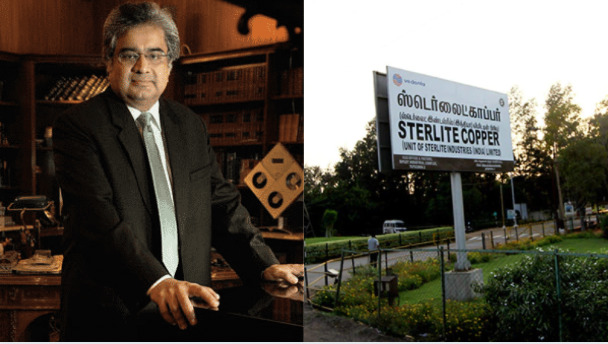A few days ago, the Sterlite Copper plant, which was closed almost three years ago due to protest from paid environmentalists, offered to produce tonnes of oxygen at the same plant to meet the shortage in the country. The company appealed to the Supreme Court that the plant should be allowed to produce oxygen in time of national emergency, and the apex court is ready to hear its case.
“We can start in five to six days if you give a go ahead today. The company can manufacture tonnes of oxygen there every day and is ready to supply them free of cost,” said Harish Salve, appearing for Vedanta. Salve argued for an urgent hearing of the plea by Vedanta Limited in order to ensure that the national demand for oxygen is met.
The Union government also supported the request by Vedanta Limited. Additional Solicitor General Tushar Mehta argued in favour of the company restarting the TamilNadu based facility to produce oxygen. “Let Vedanta make it operational only to manufacture oxygen for health purposes,” said SG Tushar Mehta.

If the apex court allows the plant to open, capitalizing on this goodwill, Harish Salve might push for the permanent opening of the production facility that was closed three years ago due to protest from China-paid environmentalists.
The closure of the Sterlite copper plant has done immense damage to the economy of the country, and massive benefit to Chinese and Pakistani copper producers. The company also paid 2,200 crore rupees in tax to the government. The Tamil Nadu government had ordered the closure of the plant in May 2018. But the National Green Tribunal (NGT) cleared the reopening of the plant a few months back. However, the Supreme Court overruled the NGT order and the plant remains non-operational. The matter is sub-judice and the case is pending in Madras High Court.
Tuticorin plant produced 400,000 tonnes per annum, accounting for 40 per cent of the total copper production in the country. After its closure, total production of India fell by 47.1 per cent while the above 40 per cent drop was due to the shutdown of smelters of Hindustan Copper (HCL) and Hindalco for maintenance purposes. Vedanta’s Tuticorin plant had a share of 35 per cent in India’s primary copper market and exported the metal to Asian and Gulf nations. India’s copper demands have grown consistently over the years and the intentions of Chinese firms to uproot Indian firms to capture the Indian market do not come as a surprise.
Swarajya had earlier reported that the churches in the region had appealed to its members to support the Sterlite protest. The magazine had also reported that one of the mobs, comprising around 5,000 had gathered in front of one of the churches in the region before it proceeded to wreak havoc.
The article goes on to claim that according to the Intelligence Bureau, there were Naxal elements among the protestors too and that the police had been tipped off about this. The protests had found traction among many politicians in Tamil Nadu including Kamal Haasan. So, it seems that the nexus between some Church elements, Naxals and the foreign elements, particularly the Chinese competitors of Vedanta, may have succeeded in hurting the economic interests of India, Tamil Nadu and the poor people in the region due to the lacklustre attitude of the state government.
Restarting the facility for the production of oxygen in the time of emergency is definitely a priority, but the Supreme Court needs to consider the damage to the country due to the closure of the plant – and not just order its permanent reopening but culprits who started paid protest also need to be punished.



























